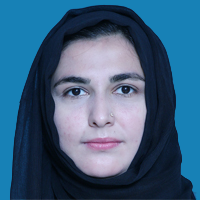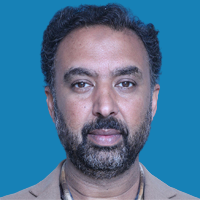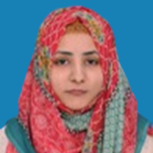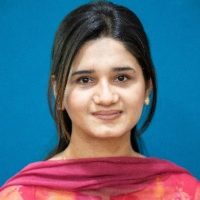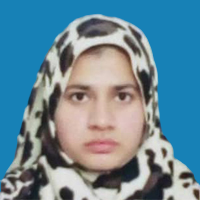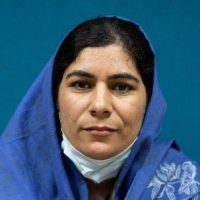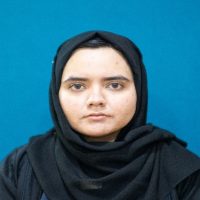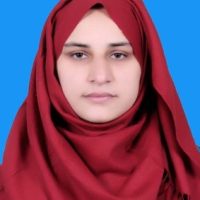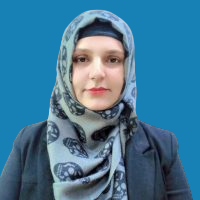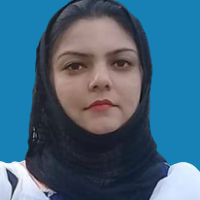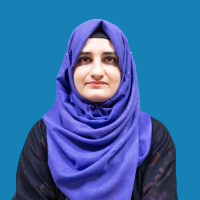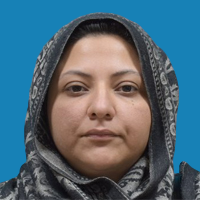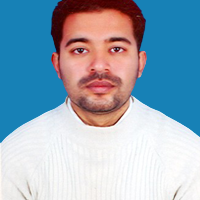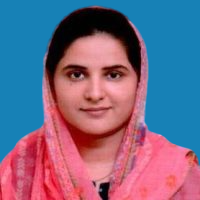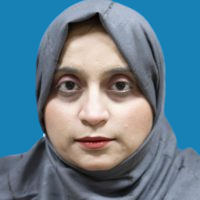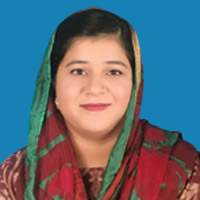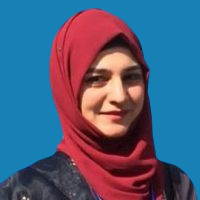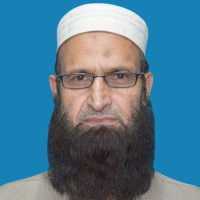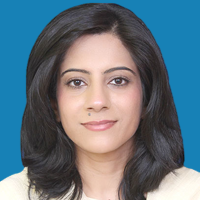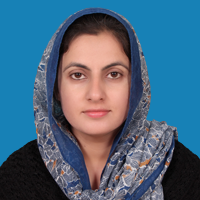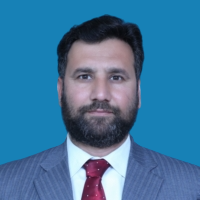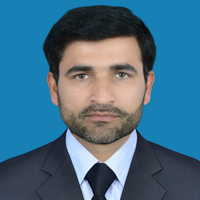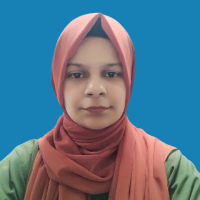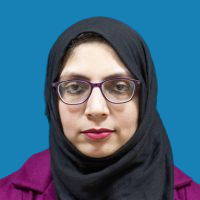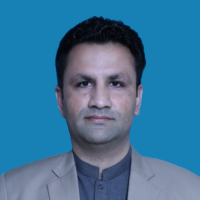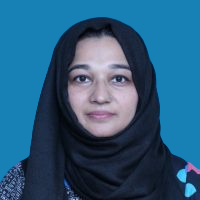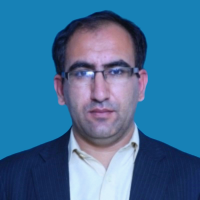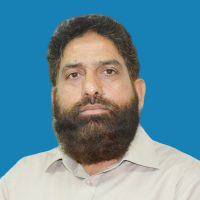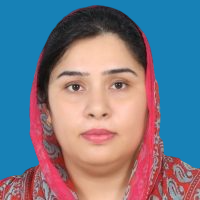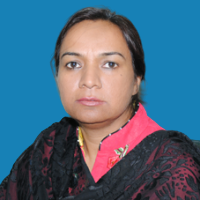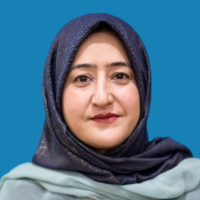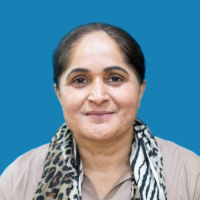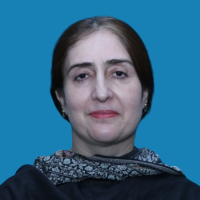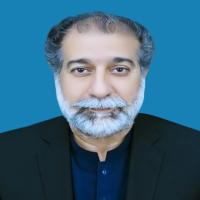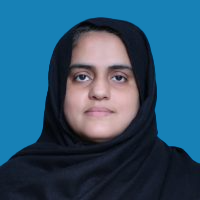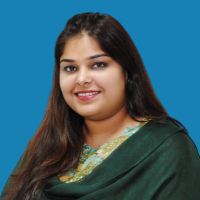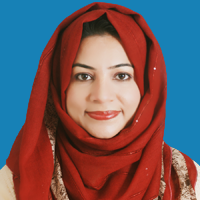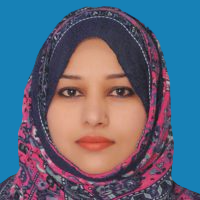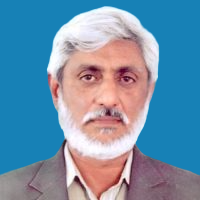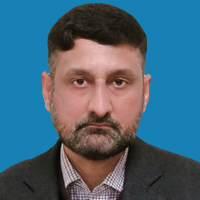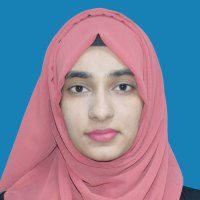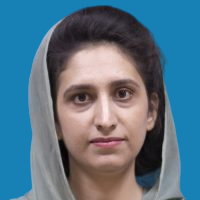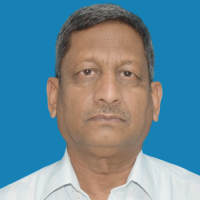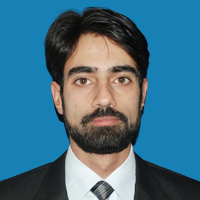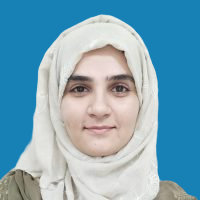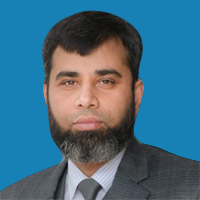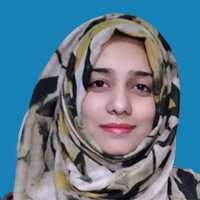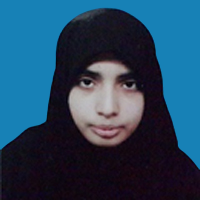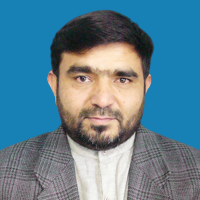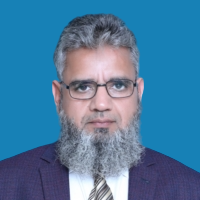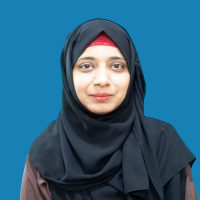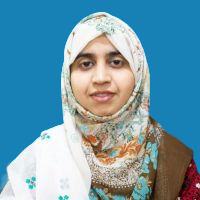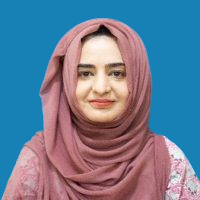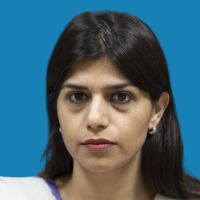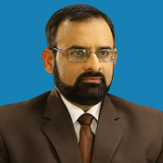
PROFILE SUMMARY
-
He has an outstanding professional educational career and remained position holder in B.Sc., M.Sc. and PhD degrees earned from UET Taxila. He has good presentation skills and command on English language and has passed CSS Examination held by FPSC. He believes in shaping immature minds into mature ones as a Teacher by listening to students, answering them professionally. Inculcating ethics, respect, and a will to do what is needed are the lessons given to students besides nurturing them with required and latest developments in the field of civil engineering as per OBE (Outcome Based Education). He has vast Administrative experience throughout in his professional journey starting from leading a section of engineering design team at the start of professional life; then acting as Project Manager (leading and controlling activities of number of design teams and dealing with client and contractors); acting as Head of the civil engineering (CE) department at CUST and as Director DSE (Directorate of Sustainability and Environment) CUST. Thus, Stability and leadership are the qualities proven from doing services in one Industrial (NESPAK) and one Education (CUST) organizations. He has successfully executed accreditation visits of PEC and HEC.
| QUALIFICATION | |||
| PhD | Water Resources and Irrigation Engineering | UET Taxila | 2011 |
| MSc | Water Resources and Irrigation Engineering | UET Taxila | 2007 |
| TEACHING EXPERIENCE | |||
| Professor | Capital University of Science and Technology Islamabad | Since – 2021 | |
| Associate Professor | Capital University of Science and Technology Islamabad | 2016 – 2021 | |
| Assistant Professor | Capital University of Science and Technology Islamabad | 2015 – 2016 | |
| Assistant Professor | Muhammad Ali Jinnah University Islamabad Campus | 2014 – 2015 | |
| INDUSTRIAL EXPERIENCE | |||
| Principal Engineer | NESPAK | 2011 – 2014 | |
| Senior Engineer | NESPAK | 2003 – 2011 | |
| Junior Engineer | NESPAK | 1999 – 2003 | |
-
MANAGEMENT EXPERIENCE HoD Capital University of Science and Technology Islamabad Since – 2017 Project Manager NESPAK Islamabad office 2007 – 2014
| MEMBERSHIP OF PROFESSIONAL BODIES | |||
| PEC | Pakistan Engineering Council (PEC) | ||
| ASCS | Associate member American Society of Civil Engineers (ASCE) | ||
| UACSE | The Institute of Research Engineers and Doctors (IRED) | ||
| RESEARCH AREAS / INTERESTS | |||
| 1. | Water Resources | ||
| 2. | Irrigation Engineering | ||
| 3. | Hydrology | ||
| 4. | Public Health Engineering (Plumbing) | ||
| RESEARCH SUPERVISION | |||
| 1. | PhD | Framework Development for Environmental Management of Demolition Wastes of Road Projects. | |
| 2. | PhD | Decision making model for fast-track construction projects using structural equation modelling. | |
| 3. | PhD | Evaluation of Water Distribution System and Reservoir Ranking in Indus River Basin: A Hydro-Political Perspective. Scholar Name: Shahmir Janjua – Status under foreign evaluation (Sep 2020) | |
| 4. | PhD | Predicting streamflow using model data fusion techniques. Scholar Name: M. Hassan – Status: thesis under preparation (Sep 2020) | |
| 5. | PhD | Effectiveness of Geometrical Design of Stilling Basin Appurtenances Downstream of the Barrage – Scholar Name: M. Waqas Zafar – Status: synopsis completed; research work started (Sep 2020) | |
| 6. | PhD | Climate change Impact on Jhelum River Basin. Scholar Name: Arsam Awan – Status: preparing for synopsis (Sep 2020) | |
| 7. | MS | Hydraulic and Financial Comparison of Combined and Separate Sewers for a residential colony in Islamabad. | |
| 8. | MS | Evaluation of Hydraulic Conditions of Soan River downstream of Chirah to Plan and Propose Water Turbine | |
| 9. | MS | Evaluation of Limitations of Rational method for Runoff Calculation for Urban Areas of Islamabad | |
| 10. | MS | Evaluation of Water Losses in Unlined Canal: A Case Study of Malik Branch Canal, Bahawalnager, Pakistan. | |
| 11. | MS | Comparative Evaluation of Hydropower Potential of Jhelum and Indus Basins Using GIS | |
| 12. | MS | Optimum Lengths of Lining to Reduce Losses in Watercourses by Using Advanced Non-linear Modelling | |
| 13. | MS | Comparative Study of Hydroponic and Geoponic systems | |
| SR. | JOURNAL PUBLICATIONS | YEAR |
|---|---|---|
| 1 | S. Shuker Ullah, I. Hassan, and S. S. S. Gardezi, “Environmental management framework for road network demolition wastes for construction industry of Pakistan,” Sustainability, vol. 16, no. 10, p. 4302, 2024. | 2024 |
| 2 | M. Sultan, I. Hassan, and S. S. Gardezi, “Identification and prioritization of decision-making aspects on high-rise fast-track buildings–a pilot study.” Vol. 47, Issue 4 p. 448-474, 2023. | 2023 |
| 3 | M. W. Zaffar, I. Hassan, U. Latif, S. Jahan, and Z. Ullah, “Numerical investigation of scour downstream of diversion barrage for different stilling basins at flood discharge,” Sustainability, vol. 15, no. 14, p. 11032, 2023. | 2023 |
| 4 | M. W. Zaffar and I. Hassan, “Hydraulic investigation of stilling basins of the barrage before and after remodelling using flow-3d,” Water Supply, vol. 23, no. 2, pp. 796–820, 2023. | 2023 |
| 5 | Z. Zhang, Y. Li, X. Chen, Y. Wang, B. Niu, D. Li Liu, J. He, B. Pulatov, I. Hassan, and Q. Meng, “Impact of climate change and planting date shifts on growth and yields of double cropping rice in southeastern China in future,” Agricultural Systems, vol. 205, p. 103581, 2023. | 2023 |
| 6 | M. W. Zaffar, I. Hassan, and A. R. Ghumman, “Numerical investigation of critical hydraulic parameters using flow-3d: a case study of Taunsa Barrage, Pakistan,” Fluids, vol. 8, no. 12, p. 310, 2023. | 2023 |
| 7 | M. W. Zaffar, I. Hassan, and A. R. Ghumman, “Performance evaluation of different stilling basins downstream of barrage using flow-3d scour models,” Hydrology, vol. 10, no. 12, p. 223, 2023. | 2023 |
| 8 | S. S. S. Gardezi, N. Shafiq, I. Hassan, and M. U. Arshid, “Life cycle carbon footprint assessments, case study of Malaysian housing sector,” Rigas Tehniskas Universitates Zinatniskie Raksti, vol. 25, no. 1, pp. 1003–1017, 2021. | 2021 |
| 9 | S. Janjua, I. Hassan, S. Muhammad, S. Ahmed, and A. Ahmed, “Water management in Pakistan’s Indus Basin: challenges and opportunities,” Water Policy, vol. 23, no. 6, pp. 1329–1343, 2021. | 2021 |
| 10 | M. Hassan and I. Hassan, “Improving artificial neural network based streamflow forecasting models through data preprocessing,” KSCE Journal of Civil Engineering, vol. 25, no. 9, pp. 3583–3595, 2021. | 2021 |
| 11 | I. Parvez, J. Shen, I. Hassan, and N. Zhang, “Generation of hydro energy by using data mining algorithm for cascaded hydropower plant,” Energies, vol. 14, no. 2, p. 298, 2021. | 2021 |
| 12 | I. Parvez, J. Shen, I. Hassan, and N. Zhang, “Generation of hydro energy by using data mining algorithm for cascaded hydropower plant,” Energies, vol. 14, no. 2, p. 298, 2021. | 2021 |
| 13 | M. Hassan and I. Hassan, “Improving ann-based streamflow estimation models for the upper Indus basin using satellite-derived snow cover area,” Acta Geophysica, vol. 68, no. 6, pp. 1791–1801, 2020. | 2020 |
| 14 | S. Janjua, I. Hassan, M. Zarghami, and S. Islam, “Addressing the supply-demand gap in shared rivers using water diplomacy framework: utility of game theory in the Indus river within Pakistan,” Water Policy, vol. 22, no. 5, pp. 789–810, 2020. | 2020 |
| 15 | S. Janjua and I. Hassan, “Use of bankruptcy methods for resolving interprovincial water conflicts over transboundary river: Case study of Indus river in Pakistan,” River Research and Applications, vol. 36, no. 7, pp. 1334–1344, 2020. | 2020 |
| 16 | S. Janjua and I. Hassan, “Transboundary water allocation in critical scarcity conditions: a stochastic bankruptcy approach,” Journal of Water Supply: Research and Technology—AQUA, vol. 69, no. 3, pp. 224–237, 2020. | 2020 |
| 17 | S. Janjua and I. Hassan, “Fuzzy ahp-topsis multi-criteria decision analysis applied to the Indus reservoir system in Pakistan,” Water Supply, vol. 20, no. 5, pp. 1933–1949, 2020. | 2020 |
| 18 | S. Janjua, I. Hassan, and S. Islam, “Role and relevance of three enabling conditions to resolve inter-provincial water conflicts in the Indus basin within Pakistan,” Water Policy, vol. 22, no. 5, pp. 811–824, 2020. | 2020 |
| 19 | E. Aamir and I. Hassan, “The impact of climate indices on precipitation variability in Baluchistan, Pakistan,” Tellus A: Dynamic Meteorology and Oceanography, vol. 72, no. 1, pp. 1–46, 2020. | 2020 |
| 20 | Ishtiaq H, Osama R, Furqan M. A, Zakir U, Hamza A, Shehryar A, Arsalan M, and Aruba W, “Reducing water demands by adopting harvesting and recycling techniques in Pakistan,” Journal of Biodiversity and Environmental Sciences (JBES), vol 14, no. 4, pp. 79-88, 2019. | 2019 |
| 21 | A. Hashmi, S. Ahmed, and I. Hassan, “Optimizing Pakistan’s water economy using hydro-economic modeling,” Journal of Business & Economics, vol. 11, no. 2, pp. 111–124, 2019. | 2019 |
| 22 | A. A. Awan, I. Hassan, and M. Hassan, “Optimizing lining length of watercourses for increased water saving in Punjab, Pakistan,” J Biodiver Environ Sci (JBES), vol. 10, no. 2, pp. 173–180, 2017. | 2017 |
| 23 | I. Hassan, A. Ghumman, Y. Ghazaw, R. Abdel-Maguid, and B. Samreen, “Climate change impact on precipitation in arid areas of Pakistan,” Int. J. Water Resour. Arid Environ, vol. 6, pp. 80–88, 2017. | 2017 |
| 24 | I. Hassan, “Rainwater harvesting—an alternative water supply in the future for Pakistan,” J. Biodivers. Environ. Sci, vol. 8, pp. 213–222, 2016. | 2016 |
| 25 | I. Hassan, A. R. Ghumman, and H. N. Hashmi, “Global warming and temperature changes for Saudi Arabia,” J. Biodivers. Environ. Sci, vol. 8, no. 1, pp. 179–191, 2016. | 2016 |
| 26 | Hassan I. and Ghumman A.R., “Application of Civil Engineering Software for Downscaling GCM Results,” International Invention Journal of Engineering Science and Technology, vol. 2(1), pp. 1-9, 2015. | 2015 |
| 27 | A. Ghumman, I. Hassan, Q. Khan, and M. Kamal, “Investigation of impact of environmental changes on precipitation pattern of Pakistan,” Environmental Monitoring and Assessment, vol. 185, pp. 4897–4905, 2013. | 2013 |
| 28 | I. Hassan, A. R. Ghumman, and H. N. Hashmi, “Impact of environmental changes and global warming on temperature in Pakistan,” Mehran University Research Journal of Engineering & Technology, vol. 30, pp. 1–14, 2011. | 2011 |
| 29 | I. Hassan, A. R. Ghumman, H. N. Hashmi, and A. S. Shakir, “Investigation of the impact of global warming on precipitation pattern of Saudi Arabia,” Civil Engineering and Environmental Systems, vol. 27, no. 4, pp. 365–376, 2010. | 2010 |
| SR. | CONFERENCE PUBLICATIONS | YEAR |
|---|---|---|
| 1 | Hamid Ali Shah and Ishtiaq Hassan. December 5th – 7th, 2019. “Evaluation of Limitations of Rational method for Runoff Calculation for Urban Areas of Islamabad.” 2nd International Conference on Sustainable Development in Civil Engineering Mehran University of Engineering and Technology, Jamshoro, Pakistan. | 2019 |
| 2 | Adnan Ahmad Khan, Ishtiaq Hassan and Muhammad Muneer. December 5th – 7th, 2019. “Evaluation of Water Losses in Unlined Canal: A Case Study of Malik Branch Canal, Bahawalnager, Pakistan”. 2nd International Conference on Sustainable Development in Civil Engineering Mehran University of Engineering and Technology, Jamshoro, Pakistan. | 2019 |
| 3 | Aruba W. and Ishtiaq H. “Comparative Analysis of Solid Waste Management Practices in Higher Education Institutions of Developing Countries” 3rd Asian Conference on Science, Technology & Medicine, ACSTM, February 12-14, 2019, Deira, Dubai UAE. | 2019 |
| 4 | I. Hassan, A.R. Ghumman , W. Aruba. “Simulating Precipitation of Bahawalpur and its adjoining Cholistan Desert of Pakistan due to Climate Change” 8th International Conference On Water Resources and Arid Environments. Riyadh Saudi Arabia, Jan 22-24, 2019. | 2019 |
| 5 | Ishtiaq Hassan, “Simulating Precipitation and temperature Trends in Pkaistan Using Three GCMs under RCP8.5 Scenario.” Seventh International Conference on Advances in Civil, Structural and Mechanical Engineering – CSM 2018, the IRED, 27-28 October Rome Italy. Oct 2018. | 2018 |
| 6 | Hamza A, Shehryar A, Arsalan M and Ishtiaq H. 2018. “Mitigating Freshwater Needs by Reuse of Greywater for Residential Apartments in Islamabad.” 1st International Conference on Advances in Engineering and Technology (ICAET-2018) BUITEMS Quetta Pakistan. April 2018. | 2018 |
| 7 | Osama R, Furqan MA, Ishtiaq H, Zakir U. 2018. “Rainwater Harvesting, an important measure to meet water requirement in arid areas of Pakistan.” 1st International Conference on Advances in Engineering and Technology (ICAET-2018) BUITEMS Quetta Pakistan. April 2018. | 2018 |
| 8 | I. Hassan, A.R. Ghumman , Y. Ghazaw , R. H. Abdel-Maguid , B. Samreen. “Climate Change Impact on Precipitation in Arid Areas of Pakistan.” 7th International Conference On Water Resources And Arid Environments-2016”. Riyadh Saudi Arabia, Dec 2016. | 2016 |
| 9 | Ghumman AR, Javed S, Hassan I, Hashmi N., Lateef A. “Impact of Climate Change on Precipitation in Jhelum”. National Multidisciplinary Engineering Conference (NMEC-15) Nov. 20-21, 2015 Lahore. School of engineering, University of Management and Tech. Lahore. March 2015 | 2015 |
| 10 | Ishtiaq Hassan; Abdul Razzaq Ghumman. “Investigation of Climate Change on Water Resources of Pakistan by using GCM Results Downscaling Approaches”. International Training Workshop on “Modeling Features using Environmental Sustainability Approach.” held at SCEE NUST sector H-12 Islamabad. March 2012. | 2012 |
| 11 | Ishtiaq Hassan, Abdul Razzaq Ghumman. “Impact of Global Warming on Flows in the River Indus and the River Jhelum in Pakistan”. World Water Day March 22, 2014 held at Pakistan Engineering Congress Lahore. March 2014. | 2014 |































